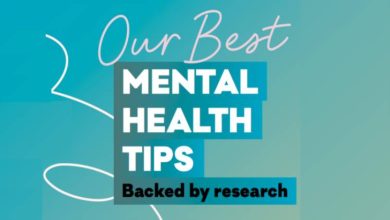Acetaminophen and Autism: Investigating the Potential Connection in Pregnancy

Over the years, acetaminophen has become a ubiquitous over-the-counter drug, sought after for its effectiveness in managing pain and reducing fever. Concerns have emerged regarding its safety in expectant mothers. Understanding the potential impact on fetal brain development is crucial.
Introduced in the 1950s, this drug has gained widespread prescription usage. As the prevalence of ASD increases, concerns emerge regarding a possible connection between acetaminophen use during pregnancy and ASD. Researchers aim to shed light on any association between maternal acetaminophen use and autism risk in children.
This article explores the scientific literature, autism’s complexity, and how acetaminophen might affect fetal brain development. We will explore previous studies, current research, controversies, and factors to consider when evaluating this potential connection.
Acetaminophen: A Commonly Used Pain Reliever
Acetaminophen, also known as paracetamol, is a widely used over-the-counter medication. It is renowned for its efficacy in alleviating pain and reducing fever. Acetaminophen’s popularity is attributed to its ability to provide relief from various discomforts. It includes headaches, muscle aches, dental pain, and menstrual cramps.
The ability to alleviate common pregnancy-related discomforts make it popular among expecting mother. A National Institute of Health study found around 70% of pregnant women in the United States used acetaminophen during pregnancy. The usage was highest in the first and third trimesters to ease pregnancy-related discomforts.
Acetaminophen inhibits prostaglandin synthesis in the central nervous system, relieving pain and reducing fever. Unlike non-steroidal anti-inflammatory drugs (NSAIDs), like ibuprofen, acetaminophen is considered gentler on the stomach and is well-tolerated by most individuals.
Autism Spectrum Disorder: Understanding the Condition
Autism Spectrum Disorder (ASD) is an intricate neurodevelopmental condition involving difficulties in repetitive behaviors, social communication, and restricted interests. Its manifestations vary, with some individuals experiencing significant communication difficulties. Others may showcase exceptional skills in specific areas, such as mathematics or music.
ASD typically emerges in early childhood, and its exact cause remains elusive. Nonetheless, scientists posit that both genetic and environmental factors play a role in its development. Early diagnosis and intervention are imperative to optimize outcomes and assist individuals with ASD in realizing their maximum potential.
Amidst the global rise in ASD prevalence, researchers examine factors like maternal health and medication use during pregnancy. Interest has grown in investigating the potential link between acetaminophen use in pregnancy and ASD risk in children.
The Centers for Disease Control and Prevention reports a consistent increase in the prevalence of autism in the United States over recent decades. In its latest report, the CDC estimated that approximately 1 in 36 children below 8 in the US have ASD. The data emphasize studying medication use during pregnancy as a potential risk factor contributing to the rise in ASD cases.
Parents with children having ASD who used acetaminophen during pregnancy are turning towards legal avenues to get compensation for the damages. Parents involved in the Tylenol autism lawsuit claim that the use of acetaminophen during pregnancy caused their children’s autism.
According to TorHoerman Law, the Tylenol autism civil lawsuit is centralized in the US District Court: Southern District of New York. The Acetaminophen – ASD/ADHD Products Liability Litigation (MDL 3043) consolidates claims related to ASD and acetaminophen use during pregnancy.
Though legal proceedings aren’t conclusive evidence, this lawsuit emphasizes the necessity for thorough investigations into acetaminophen’s potential link to autism. Researchers seek to understand ASD’s complexities, necessitating exploration of all potential avenues, such as investigating acetaminophen’s safety in pregnancy.
Previous Studies and Findings
Several observational studies have investigated the links between prenatal exposure to acetaminophen and neurodevelopmental outcomes in children. Certain studies have indicated potential connections between acetaminophen usage during pregnancy and a heightened likelihood of ASD in the offspring. However, it is essential to note that observational studies can only establish correlations and not causal relationships.
The scientific community seeks to advance understanding through ongoing research, addressing limitations, and offering robust evidence for informed decisions in pregnancy.
Current Research and Controversies
Continuing research and discussions revolve around the potential relationship between prenatal acetaminophen use and autism spectrum disorder (ASD). Studies indicate that prenatal exposure to acetaminophen impacts fetal brain development and elevates the risk of ASD, necessitating careful consideration.
In September 2022, Fox News reported a study in the journal PLOS Medicine. It found a 20% increase in attention and sleep problems among young children with prenatal acetaminophen use. These reports favor the significant association between maternal acetaminophen use during pregnancy and an increased risk of ASD.
Various factors, such as genetic predisposition and underlying conditions, might influence outcomes. As research continues, healthcare professionals and expectant mothers must stay updated with evidence-based findings to make informed decisions. Collaborative efforts will aid in solving the complexities of this intriguing topic.
Factors to Consider
Several critical factors must be considered when exploring the potential link between acetaminophen use during pregnancy and ASD in children.
- Causation vs. Correlation: It is crucial to distinguish between causation and correlation. Observational studies may show associations, but they cannot establish causality. Other confounding variables may influence the outcomes, making it challenging to pinpoint a direct cause-effect relationship.
- Dosage and Timing: The frequency, dosage, and timing of acetaminophen use during pregnancy may play a role in potential outcomes. Different gestational periods and varying levels of exposure could yield diverse results.
- Genetic factors: The contribution of genetic factors to both autism risk and response to medication must not be overlooked. Genetic predisposition might interact with environmental exposures, influencing ASD outcomes.
- Fetal development: The intricate process of fetal brain development demands scrutiny. How acetaminophen might affect this process warrants further exploration.
As research advances, a comprehensive approach will aid in understanding the potential link between acetaminophen and autism in pregnancy.
Recommendations and Medical Advice
Healthcare professionals should approach the possible association between prenatal acetaminophen use and ASD in children with careful consideration and caution. The ongoing research and complexities surrounding this topic warrant careful consideration when providing recommendations and medical advice to expectant mothers.
- Seek guidance from healthcare professionals: Expecting mothers should engage in discussions with their healthcare providers prior to using any medication, including acetaminophen. Open dialogue about the advantages and potential drawbacks of medication during pregnancy is vital for informed choices.
- Consider alternatives: Whenever possible, exploring non-medication alternatives for managing pain and discomfort during pregnancy should be considered. Simple lifestyle adjustments or physical therapy may help alleviate certain symptoms.
- Adherence to recommended dosages: If acetaminophen is deemed necessary, it should be used at the lowest effective dose.
Final Thoughts
Investigating the potential connection between acetaminophen use during pregnancy and autism spectrum disorder (ASD) requires a cautious approach. The complexities and ongoing research demand careful consideration of the evidence. Healthcare professionals should engage in open discussions with expectant mothers, weighing risks and benefits.
While studies show associations, causality remains uncertain. Factors like genetic predisposition and underlying conditions need attention. Collaboration and up-to-date research will provide insights into this complex relationship. Informed decisions and well-balanced medical advice are vital for the health of both mother and child.




